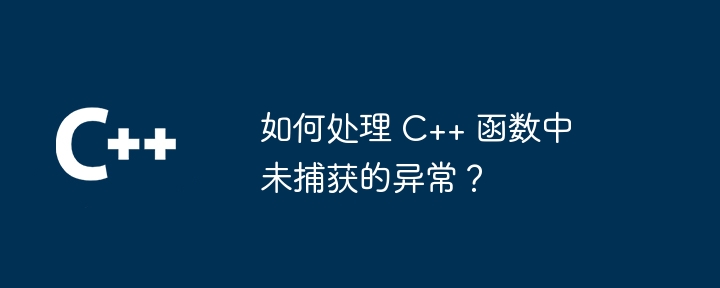处理未捕获的 c++++ 异常有以下方法:1. 使用 try-catch 块;2. 使用 set_terminate 函数;3. 使用 __try-__finally 语句。在实战中,可以使用 try-catch 块处理潜在的异常,使其不会导致程序意外终止。

在 C++ 中,未捕获的异常会导致程序意外终止。为了防止这种情况,可以通过以下方式处理未捕获的异常:
1. 使用 try-catch 块try {
// 可能抛出异常的代码
}
catch (const std::exception& e) {
// 处理异常
} 2. 使用 set_terminate 函数set_terminate 函数允许您指定在发生未捕获的异常时调用的函数。该函数应该接受一个 std::exception_ptr 参数,其中包含有关异常的信息。
std::set_terminate([](std::exception_ptr p) {
// 处理异常
}); 3. 使用 __try-__finally 语句__try-__finally 语句确保无论是否抛出异常,都执行指定的代码块。
__try {
// 可能抛出异常的代码
}
__finally {
// 清理代码
} 实战案例考虑以下代码,它使用 try-catch 块处理潜在的异常:
void divide(int a, int b) {
try {
if (b == 0) throw std::runtime_error("除以零错误");
std::cout << (a / b) << std::endl;
}
catch (const std::runtime_error& e) {
std::cout << e.what() << std::endl;
}
} 使用此函数:
int main() {
divide(10, 2); // 输出 5
divide(10, 0); // 输出 "除以零错误"
return 0;
} 以上就是如何处理 C++ 函数中未捕获的异常?的详细内容,更多请关注知识资源分享宝库其它相关文章!







发表评论:
◎欢迎参与讨论,请在这里发表您的看法、交流您的观点。